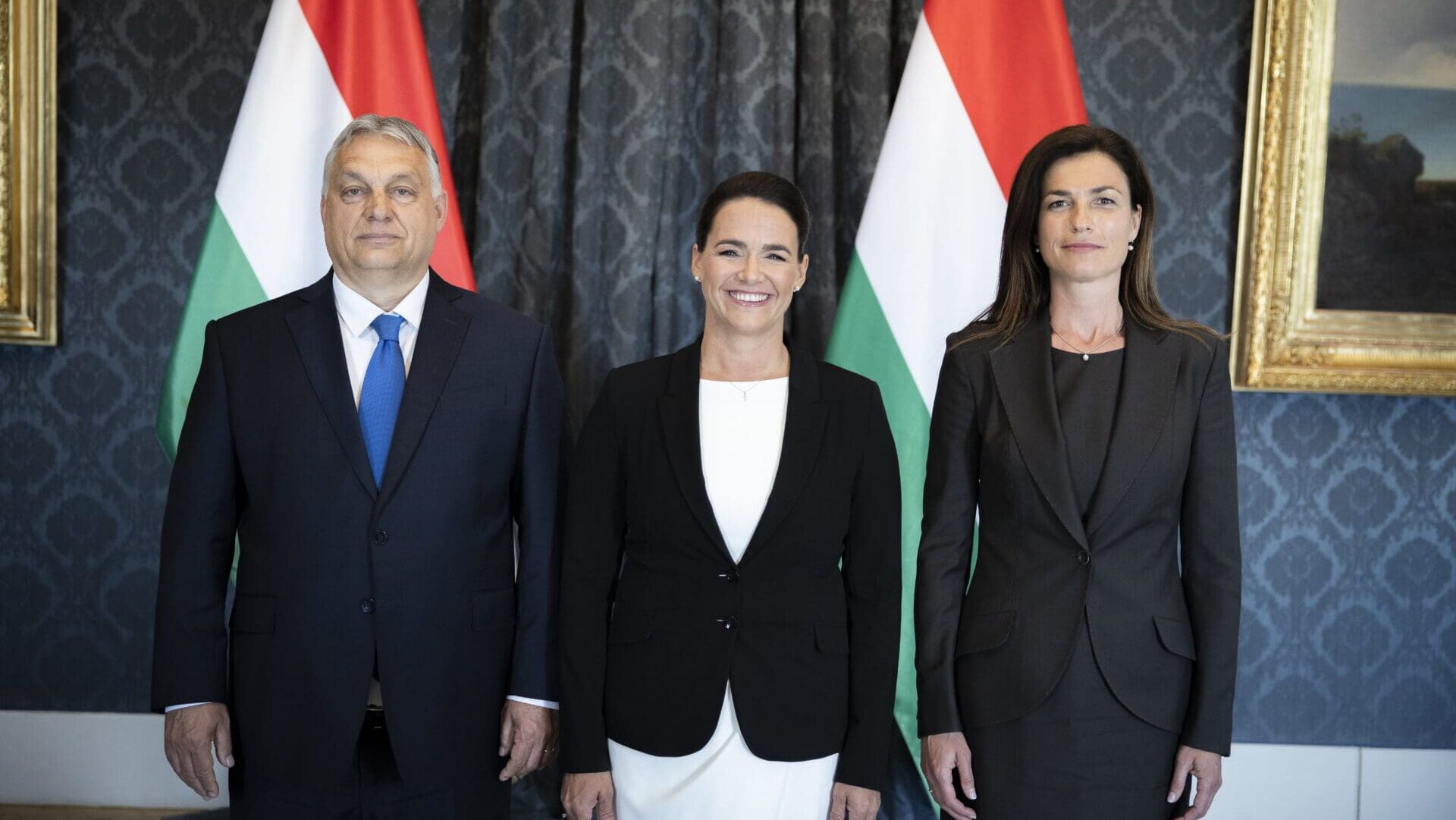Few setbacks in a chess game are as severe as being forced to decide, in response to the opponent’s move, which crucial piece to sacrifice to maintain hope of victory. Should it be the queen? Or perhaps the rook? In a worst-case scenario, one may end up having to give up both.
10 February 2024 marks a dark day in the annals of contemporary Hungarian conservatism: two of its most significant pillars were pulled down. Katalin Novák had earned unparalleled accolades among conservatives for her advocacy in advancing family policies, while Judit Varga, the lead candidate on the government’s European Parliament list, and former justice minister, wielded substantial influence in advocating for a more rationalized EU policy with her expertise and political tenacity.
The resignation of these two accomplished and charismatic female politicians stemmed from the same incident: the presidential pardon of a deputy school director who sought to shield his superior, the school’s director later convicted of paedophilia, from facing criminal charges.
Katalin Novák and Judit Varga bore joint political responsibility for their decision: Novák as the President who by law had the power to grant pardons and Varga as the Minister of Justice, who countersigned the decision.
In response to the unfolding scandal, Prime Minister Viktor Orbán emphasized Hungary’s stance against paedophilia and related offenses, reiterating that they are unacceptable for Hungarian society.
Echoing the sentiments of many parents, Prime Minister Orbán expressed his vehement disapproval of such crimes in a social media post, underscoring the visceral reaction any parent would have in response to their child being harmed.
That is why the constitutional amendment he then proposed is morally justified.
It reads as follows: ‘The President of the Republic may not exercise his right of individual pardon in the case of an intentional crime committed against a minor.’
Yet, there remains a crucial issue unaddressed by this proposed amendment: the rationale behind the President of the Republic’s decision to grant a pardon. It is indisputable that both Katalin Novák and Judit Varga vehemently denounce paedophilia, viewing it with the same abhorrence as other heinous crimes.
The question arises: what extenuating nonlegal circumstances, if any, were overlooked by the Hungarian courts at the time of delivering the decision? Is it plausible that the decisions made by these two politicians can be put down simply to oversight or negligence? What has been conspicuously absent from public discourse from the start is seeking to understand what guided the actions of these two politicians.
It seems that we will never find out what the justification behind the pardon was, and the only—bitter—recompense is the resignation of the two key figures. And it indeed is recompense, as the political principles upheld by Katalin Novák and Judit Varga remain intact as a result.
The accomplishments realized under their guard affirm that Hungarian conservatives are indeed on the right trajectory when advocating policies that promote childbearing and the fortification of the institution of marriage. Alongside championing conservative family values, it is also thanks to the efforts of Novák and Varga that Hungary stands out as one of the few EU member states offering reasoned criticism of the utopian trends in Brussels that threaten European peace.
However, the need for explanations persists into the future. Therefore, I propose enhancing the Prime Minister’s constitutional amendment by
mandating that the President of Hungary provides a justification whenever granting a pardon.
It’s important to remember: a presidential pardon isn’t a legal remedy; it’s the President’s legally allowed intrusion into the realms of justice while the President continues to be an ‘outsider’ in this regard. This means that both the president and the minister of justice undertake a serious political risk whenever they open such cases.
Considering the positions Katalin Novák and Judit Varga held, it is evident that countering the progressive tendencies of identity politics amid the culture war, along with the unchecked euro-federalism threatening state sovereignty, presents significant risks in themselves.
In chess, zugzwang refers to a situation in which a player is at a disadvantage because any move they make will worsen their position; once a player falls into a zugzwang, winning becomes highly challenging. Nevertheless, achieving victory post-zugzwang is not entirely out of reach, particularly if the opponent fails to capitalize on its advantageous position or makes a critical error.
Luckily, with the fundamental strategy deemed sound from the outset, the primary objective for the Hungarian governing party now lies in swiftly identifying suitable individuals to continue the work towards the broader objectives. Given the global footprint of Hungarian conservative politics, it is scarcely an overstatement to suggest that conservative factions worldwide are eagerly awaiting the developments in this case. With the campaign season ‘officially’ on, brace yourselves for a wild game, Conservatives.
Read more on the subject:








